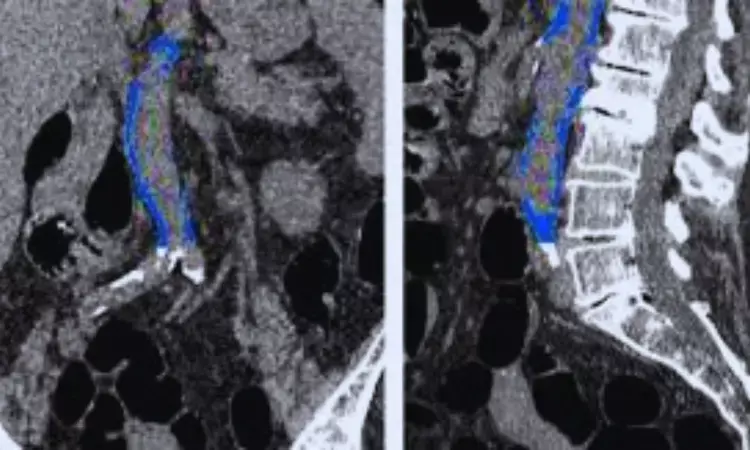- Home
- Medical news & Guidelines
- Anesthesiology
- Cardiology and CTVS
- Critical Care
- Dentistry
- Dermatology
- Diabetes and Endocrinology
- ENT
- Gastroenterology
- Medicine
- Nephrology
- Neurology
- Obstretics-Gynaecology
- Oncology
- Ophthalmology
- Orthopaedics
- Pediatrics-Neonatology
- Psychiatry
- Pulmonology
- Radiology
- Surgery
- Urology
- Laboratory Medicine
- Diet
- Nursing
- Paramedical
- Physiotherapy
- Health news
- Fact Check
- Bone Health Fact Check
- Brain Health Fact Check
- Cancer Related Fact Check
- Child Care Fact Check
- Dental and oral health fact check
- Diabetes and metabolic health fact check
- Diet and Nutrition Fact Check
- Eye and ENT Care Fact Check
- Fitness fact check
- Gut health fact check
- Heart health fact check
- Kidney health fact check
- Medical education fact check
- Men's health fact check
- Respiratory fact check
- Skin and hair care fact check
- Vaccine and Immunization fact check
- Women's health fact check
- AYUSH
- State News
- Andaman and Nicobar Islands
- Andhra Pradesh
- Arunachal Pradesh
- Assam
- Bihar
- Chandigarh
- Chattisgarh
- Dadra and Nagar Haveli
- Daman and Diu
- Delhi
- Goa
- Gujarat
- Haryana
- Himachal Pradesh
- Jammu & Kashmir
- Jharkhand
- Karnataka
- Kerala
- Ladakh
- Lakshadweep
- Madhya Pradesh
- Maharashtra
- Manipur
- Meghalaya
- Mizoram
- Nagaland
- Odisha
- Puducherry
- Punjab
- Rajasthan
- Sikkim
- Tamil Nadu
- Telangana
- Tripura
- Uttar Pradesh
- Uttrakhand
- West Bengal
- Medical Education
- Industry
Poor Sleep Patterns Linked to 65 Percent Higher Risk of Abdominal Aortic Calcification in Adults: Study Finds

China: A recent study published in Vascular Health and Risk Management has found that poor sleep habits may significantly increase the likelihood of abdominal aortic calcification (AAC) in adults, highlighting sleep quality as a potential modifiable risk factor for cardiovascular health. The research, led by Yunqing Chen from the Department of Infectious Diseases, Affiliated Hospital of Jiaxing University, Zhejiang, China, examined the link between various sleep patterns and AAC prevalence using data from the National Health and Nutrition Examination Survey (NHANES) 2013–2014 cycle.
The study analyzed 2,801 participants aged 40 years and older, assessing their AAC scores through the Kauppila scoring system. Sleep patterns were evaluated based on a composite score incorporating sleep duration, self-reported trouble sleeping, and the presence of sleep disorders. Researchers applied weighted multivariable regression models to assess the relationship between sleep quality and AAC risk.
The findings revealed the following:
- Individuals with poor sleep patterns had a 65% higher risk of abdominal aortic calcification.
- The risk of severe AAC was more than double in those with poor sleep habits compared to individuals with healthy sleep patterns.
- The link between poor sleep and higher AAC prevalence remained significant even after adjusting for factors such as age, hypertension, diabetes, smoking status, physical activity, and kidney function.
- Older adults, smokers, people with metabolic disorders, and those with lower levels of physical activity were more likely to exhibit both poor sleep patterns and elevated AAC scores.
The authors emphasized that AAC is a strong predictor of atherosclerotic cardiovascular disease and adverse cardiac events, making the findings clinically relevant. They suggested that improving sleep quality could serve as a preventive strategy against vascular calcification and subsequent cardiovascular complications. Integrating sleep assessment into cardiovascular risk evaluations may help identify at-risk individuals earlier, while sleep-focused interventions, such as cognitive behavioral therapy, might offer protective benefits.
Exploring the biological mechanisms behind the observed association, the study noted that poor sleep can trigger inflammatory pathways and oxidative stress, both of which are known to contribute to vascular calcification. Inflammatory cytokines such as interleukin-1β and interleukin-6 may facilitate the transformation of vascular smooth muscle cells into osteoblast-like cells, promoting calcification. Additionally, sleep disturbances are linked to endothelial dysfunction, another key factor in vascular health.
While the study adds valuable evidence to the growing body of literature on sleep and cardiovascular risk, the authors acknowledged several limitations. As a cross-sectional analysis, it could not establish causality between poor sleep and AAC. Sleep quality data relied on self-reports, which may introduce bias, and the findings were limited to US adults over 40 years of age, leaving uncertainty about their applicability to younger populations or other demographics. Future longitudinal studies with objective sleep measurements and diverse populations are needed to confirm these associations.
The researchers concluded that maintaining good sleep hygiene may play an important role in preventing AAC and improving cardiovascular outcomes. Given the widespread prevalence of sleep disturbances and their potential impact on vascular health, the findings underscore the need for integrating sleep assessment into preventive healthcare strategies.
Reference:
Chen Y, Xu S, Duan M, Shen L. Poor Sleep Pattern Might Increase the Prevalence of Abdominal Aortic Calcification in US Adults: Data from the NHANES (2013-2014). Vasc Health Risk Manag. 2025;21:571-579 https://doi.org/10.2147/VHRM.S532476
Dr Kamal Kant Kohli-MBBS, DTCD- a chest specialist with more than 30 years of practice and a flair for writing clinical articles, Dr Kamal Kant Kohli joined Medical Dialogues as a Chief Editor of Medical News. Besides writing articles, as an editor, he proofreads and verifies all the medical content published on Medical Dialogues including those coming from journals, studies,medical conferences,guidelines etc. Email: drkohli@medicaldialogues.in. Contact no. 011-43720751


